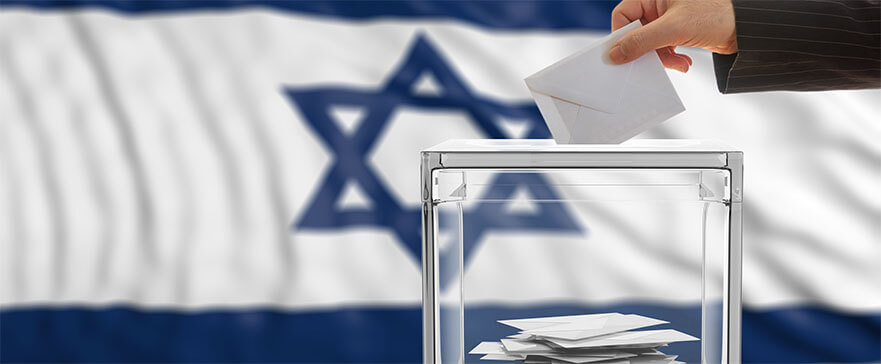We’re nearing Election Day in the United States. This is a good time to brush up on Israel’s election process. The truth is, Election Day in Israel is nothing like ours in America. That’s because the government systems of the two nations are so different. For instance, Prime Minister Menachem Begin once remarked that in Israel he led a nation of more than 3 million prime ministers! So how does Israel choose its prime minister, and how is it different from the United States’ choice of president?
Prime Minister Menachem Begin once remarked that in Israel he led a nation of more than 3 million prime ministers!
One major difference is that in the United States we elect our president by voting for a person. However, in Israel the election process selects the candidate from the party. A second difference between Israel and the United States is that the Israeli government funds the election, about 475 million NIS, whereas in the United States tens of millions of dollars are donated to both political parties and candidates’ coffers to fund the American election. Finally, the speed in which an Israeli election can occur is different from ours in the United States, as Israel can hold an election within 3–4 months of calling for one, whereas we have an election every four years.
Here is a series of questions and answers to help understand the election process in Israel.
What form of government does Israel have?
Israel uses a parliamentary form of government which models the United Kingdom (UK) rather than the United States’ form of governing. “Unlike the US, Israelis vote for parties but do not directly determine which politician will head the next government. Instead, voters cast a ballot for one party, and the faction with the most votes gets a chance to form the next ruling coalitions.”1
How many political parties does Israel have?
The political parties in Israel today number 22. In addition to primary and traditional parties like Labor, Likud, and Blue and White, there are several others, including Arab and religious parties. These all compete for their interests, causes, and desires to be considered and enacted. The key to Israel’s government is attaining and maintaining coalitions.
What is the Knesset, and what is its role in the government?
The Knesset is the primary organ of government in Israel. It has 120 seats, and it determines the leadership of the nation. “The entire country functions as one district …. All 120 seats are elected by a national process—much like a US senator must campaign across their state.”2
How does the Knesset determine the leader of the country?
“Each party puts forth a list of candidates and the number of seats … proportional to the number of votes received. A party that received 15 percent of the general vote will receive 15 percent of the seats in the Knesset ….The result is a multi-party system considered to be very highly representative—as each citizen has a wide array of parties to choose from.”3
The result is a multi-party system considered to be very highly representative—as each citizen has a wide array of parties to choose from.
After the seats are distributed begins the hard work of cobbling together the coalition to form the government. “The heads of the different parties are invited to meet the president and each recommends one person to form the next government. The person with the highest number of recommendations—or the best odds to gaining a majority in the Knesset—is granted the privilege to form the coalition. If they succeed, they become the new prime minister.”4 This person has 40 days to put together the new government. If this time passes without a majority reached, “the president repeats the process—sometimes extending the same mandate to the same person or giving it to someone else. If 100 days pass without a coalition being formed, new elections are called and the process begins anew.”5 Israel went through this situation in its most recent election this past March, leading to an eventual shared leadership between Likud’s Benjamin Netanyahu and the Blue and White Party’s Benny Gantz.
Quite the process isn’t it? But Daniel 2:20–21 reminds us that God has a role in our elections whether in Israel, the United States, or anywhere else: “Blessed be the name of God forever and ever, for wisdom and might are His. And He changes the times and the seasons; He removes kings and raises up kings; He gives wisdom to the wise and knowledge to those who have understanding.” God casts the final vote.
Endnotes
1 “A Beginner’s Guide to Israel’s Elections.” Ynetnews. Last modified February 5, 2015. https://www.ynetnews.com/articles/0,7340,L-4623499,00.html.
2 Ibid.
3 Ibid.
4 Ibid.
5 Ibid.




